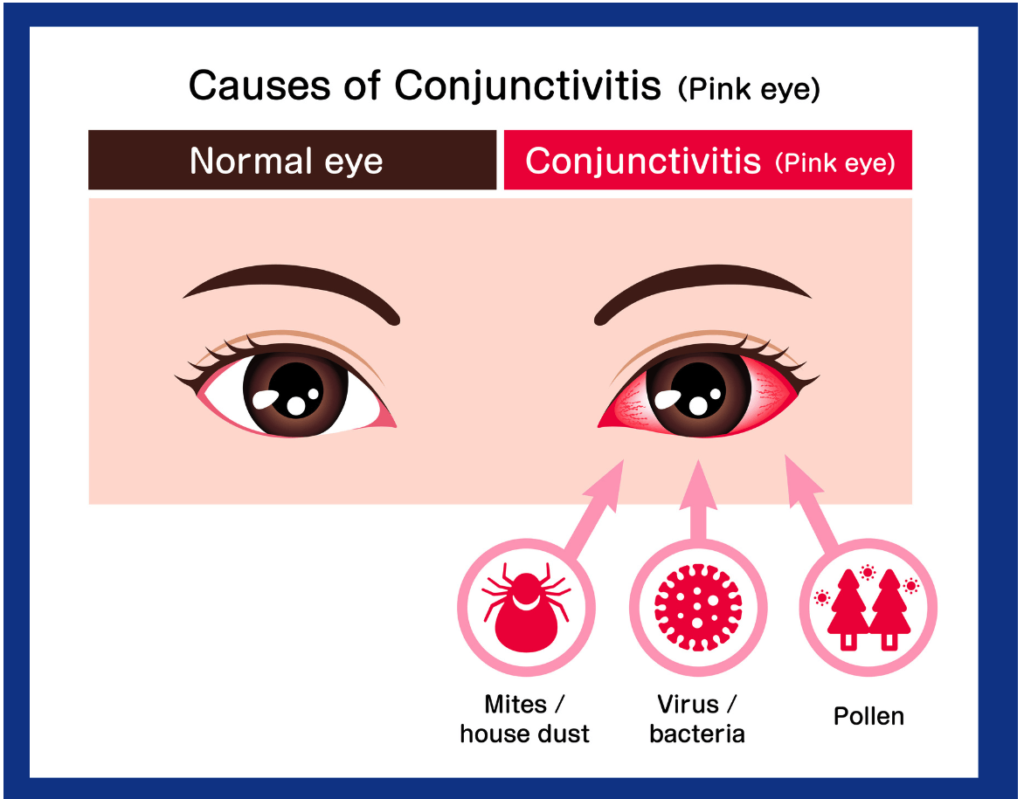In This Issue: February 2023
- Foods to Avoid if You Have Macular Degeneration
- Celebrating Black History Month the Eye Way
- Eye Care Tip of the Month: Avoid the Pink

Foods to Avoid if You Have Macular Degeneration
February is Age-related Macular Degeneration (AMD) Awareness Month. AMD damages your central vision, making it difficult to perform normal daily tasks. There are two types of AMD: the dry form is caused when small yellow deposits collect under the retina (the back of your eye); the wet form is caused when abnormal, fragile blood vessels grow under/on the retina (often breaking and leaking). Dry AMD can develop slowly while Wet AMD can cause serious vision loss very quickly.
If you have AMD – or if you want to help prevent AMD – there are certain foods you should avoid:
- White bread, pasta and other simple carbohydrates that cause a spike in blood sugar
- Deep-fried foods and junk food cooked in trans fats that raise LDL cholesterol levels
- Cooking oils that contain linoleic acid such as sunflower, corn, safflower, soybean and sesame oils
- Margarine or lard with trans fats
- Sugary drinks that stimulate inflammation
Instead, choose naturally colorful, fresh foods full of vitamins, antioxidants, Omega-3 fatty acids, zinc and copper. These choices will help feed your eyes the nutrients needed to reduce your risks or slow the progression of AMD. If you’ve been experiencing any central vision disturbances, contact us to schedule an eye exam: call (702) 896-6043 or click here.

Celebrating Black History Month the Eye Way
America’s first African-American Eye Specialist was David Kearney McDonogh, MD (1821-1893). Originally born into slavery, David was freed by his owner, John McDonogh, and given the opportunity to study at Lafayette College in Easton, Pennsylvania. Although John McDonogh had plans for David to serve as a missionary in Liberia after graduation, David had a strong desire to study medicine. Thanks to his appointed guardian, Senator Walter Lowrie from Pennsylvania, David was able to sever ties with John and earn his medical degree.
David K. McDonogh completed his medical studies from the College of Physicians and Surgeons of New York (later Columbia University Medical School) in 1847. He practiced at the New York Eye and Ear Infirmary and later had a private practice for over 40 years. We thank Dr. McDonogh for his ambition, perseverance and dedication to our field.

Eye Care Tip of the Month: Avoid the Pink
Pink: it’s a nice color for roses and boxes of chocolates, but it’s not good for the eyes! Pink eye (conjunctivitis) can be highly contagious when it stems from viruses or bacteria. Pink eye that results from allergens or environmental irritants is not contagious, but it can still be uncomfortable. Symptoms can include pain, redness, watering, grittiness, itchiness, burning, discharge and crusting of the eyelids/eyelashes.
To avoid the pink, promote healing and prevent its spread, follow these tips:
- Wash your hands often
- Don’t share personal items (hand towels, bedding, makeup, glasses, etc.)
- Don’t touch or rub your eyes
- Stop wearing contact lenses; clean your old ones thoroughly (or replace)
- Don’t use the same products on infected and non-infected eyes
If you think you or your child has pink eye, contact us right away to schedule an eye exam.



